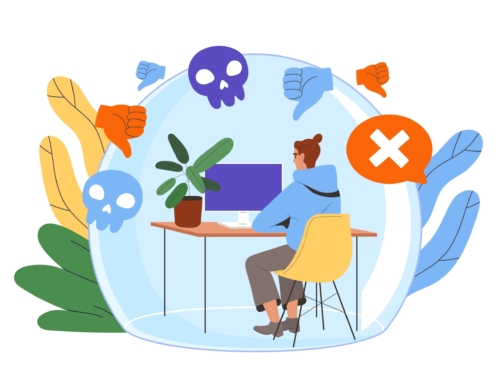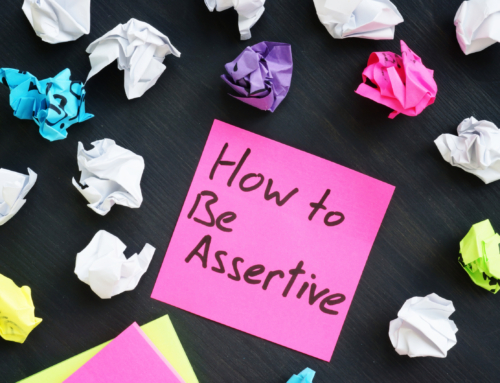Preparation is the key to a great interview. If you have got to the stage where you’re being invited to interview for a job you are already in a much smaller group and have made it through the first ‘gate’.
Going to an interview without good preparation is like going to your final exam without study. Preparation is the key to a great interview.
Here are our top 5 tips for a successful interview….or what we like to call…your greatest interview ever!
1. Preparation
2. Know your Stuff
3. The Interview
4. Interview Questions
5. Post Interview
Preparation
Study the job description either from the advert or from another source, understanding what they are looking for is a great place to start preparation. Find out as much as you can about the company, including background on who the interviewer is – LinkedIn is a great resource. Use your connections to discover information about the company and culture. People want employ people who want to work ‘there’ not just someone who wants a job. Be interested, fascinated, and curious about the company and job, this will reflect well later on during the interview. At the same time, think through your needs and requirements and what your non-negotiables are for the job. Be prepared with a list of questions, remember you should be interviewing them for the job as much as they are interviewing you. You do not want to stumble into a job that you regret taking later, this is costly and time consuming for everyone.
Know your Stuff
If it is on your resume and/or cover letter, then you may be asked to explain in more detail. At this stage you may not know what their selection criteria is, what they want to focus on or what priority they put on the required skills. Remember initially it is about what they want, not what you want in terms of the role.
Make sure you have looked at your resume and have a structured response to questions based on STAR: Situation, Task, Action, Result. Structured responses make it so much easier for the interviewer.
For any company, employing someone is an expensive exercise, interviewing is a risk mitigation activity, in other words, they are trying to minimise the risk of employing someone and the reality is, the lowest risk candidate will get the job. You become the lowest risk candidate by being able to demonstrate your ability not only to do the job, but to do the job successfully.
Be fully prepared for those questions you are worried about being asked, don’t ignore them and hope they don’t come up. Questions like:
- Why did you leave your last job?
- Tell me about yourself?
- Why do you want to work for us?
- What are your salary expectations?
- Why is there a hole in your resume?
- Don’t you think you’re over qualified?
- What are your strengths?
- What are your weaknesses?
Preparing for your interview in terms of practise questions and interviews, and really understanding your previous experience as it relates to the role you’re applying for is very important. Don’t make thing up on your resume, you must be able to justify everything on it.
The Interview
This can be nerve wracking, but proper preparation is what will see you through. The interview wants to ascertain three main things from you:
- Can you do the job?
- Can you do the job here?
- Do we like you?
These are the things you need to ensure you address. A company wants to employ someone who is excited about the job, the role and the company.
Can you do the job? this has been pretty much taken care of by your resume, you wouldn’t be meeting unless they had already answered this positively. You may still get some questions asking you to clarify your skill set.
Can you do the job here? this is the key set of questions., they are trying to ascertain whether you can adopt the skills you’ve developed in previous roles and experience and focus them to achieve in the role they want you for. You need to be able to explain to their satisfaction that your acquired skills and attributes can deliver positive results in the role your applying for to give them the outcome they’re looking for.
The interview is also a very good time to demonstrate your transferable skills.
Do they like you? As you are answering questions, the interviewer will be ascertaining whether or not you are a fit for their company (personality and to some extent values base). It is important to ‘heighten’ your sensitivity during an interview, but we don’t suggest you overdo it. We do suggest, however, that you do consider some key elements of interpersonal skills. Keep it high level, the four categories you might consider are:
Is your interviewer?
- People oriented (wants to know about you personally, family etc.
- Task oriented (wants detail about what and how you do things and the results)
- High level (wants a brief overview with impact)
- Detailed (wants lots of explanation and detail)
Try and match your response format and framework to their style. Most of all, be yourself and try and relax, the interviewer will be looking and assessing you both behaviourally and technically and you don’t want to come across false.
Interview Questions
Go through your resume and note any red flag areas that could translate into a difficult job interview question. How you respond to these tough questions is as important as what you say. Stay calm and controlled and answer in a positive and professional manner. Be aware of your tone of voice, making sure it is not defensive or aggressive. Use interview body language that conveys the message that you are comfortable and confident. Be concise and avoid rambling on as this gives the impression of nervousness. Be brief but make sure you have addressed any concerns the interviewer has. It is important that your answer provides the relevant information the interviewer is looking for. It is important that the interviewer feels comfortable that the question has been dealt with properly so that the interview can move on.
Be well prepared for other interview questions you’ll most likely be asked. Use a complete list of sample job interview questions to help you get the job you want. Answering interview questions about handling conflict, your ideal job and how you define success in your job can be tough. Be well prepared. Be ready for answering interview questions that explore your job-related competencies or behaviours.
Post Interview
This is always the tough part; you’ve put in all the effort now you have to wait. Here are some things you can do post interview:
- As you leave, ask the interviewer for their next steps. Do they require any additional information, will there be a second interview, when will you hear, when could/should I call?
- Review your own performance. Were there any areas you could have done better or questions you could have answered better? This review will help you for future interviews.
- Send a thank you note to the interviewer, either via email or preferably handwritten, thanking them for their time.
- Interact with social media, maybe comment on an industry link, connect with your interviewer, maybe post something that is relevant to you and the role you have applied for
- Contact your references and let them know they may be getting a call; you may even brief them with some information to enabler them to assist them the best way they can
- Relax! Your timeframe will rarely align with the company’s timeframes, call/email only at the agreed times, don’t get frustrated, don’t badger or annoy the interviewer. You have no idea what else is happening internally with the company.
- Don’t jump to any conclusions and don’t react negatively either through the waiting period, or if you are not successful.
Talking to a qualified Career Coach at Career Life Transitions can help you prepare for a successful interview. For access to our free ebook or a confidential career conversation Contact us














Dr Susan Roberts says: